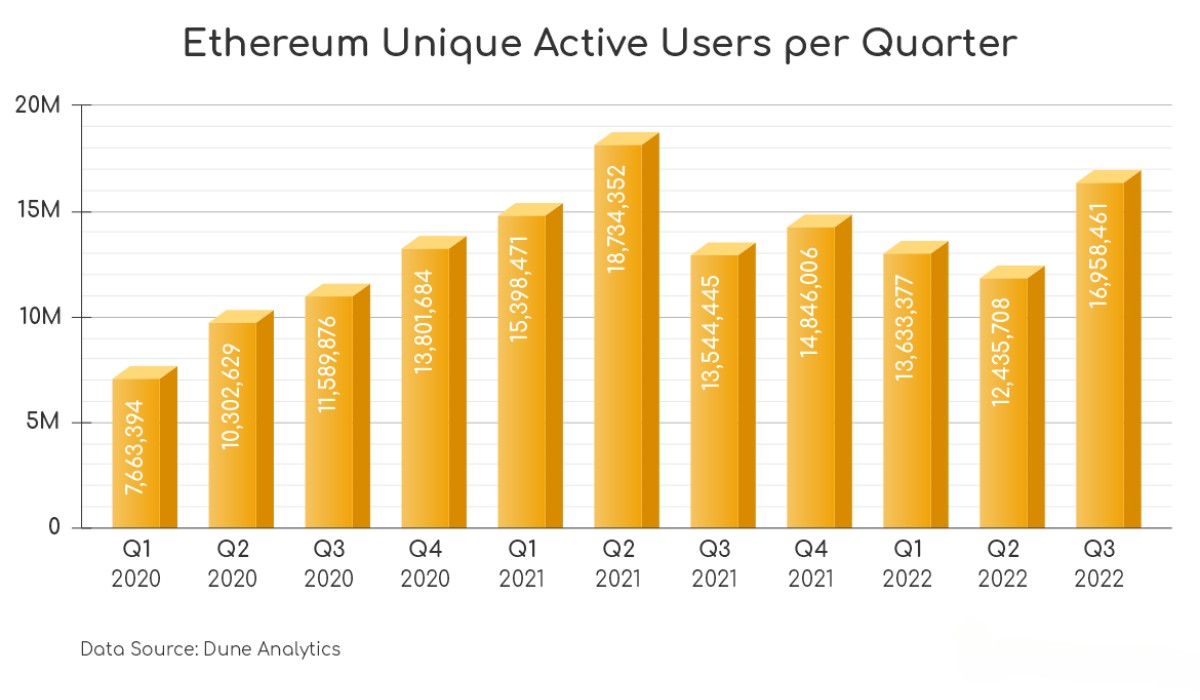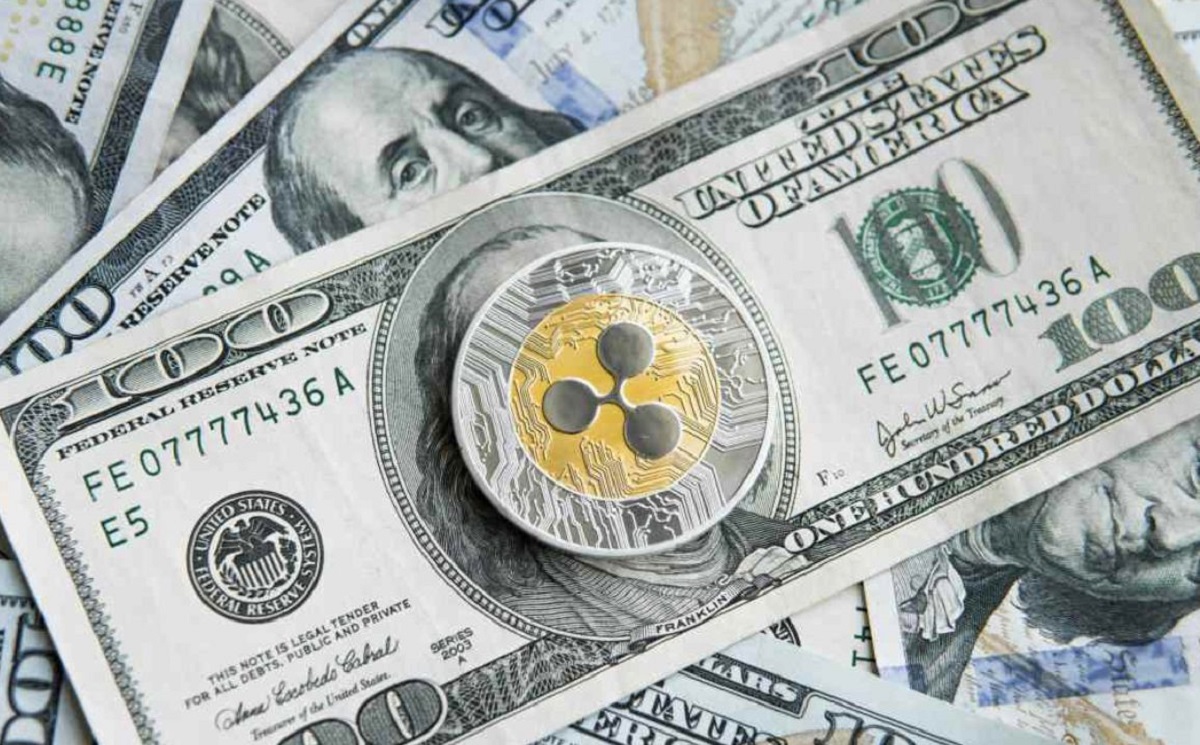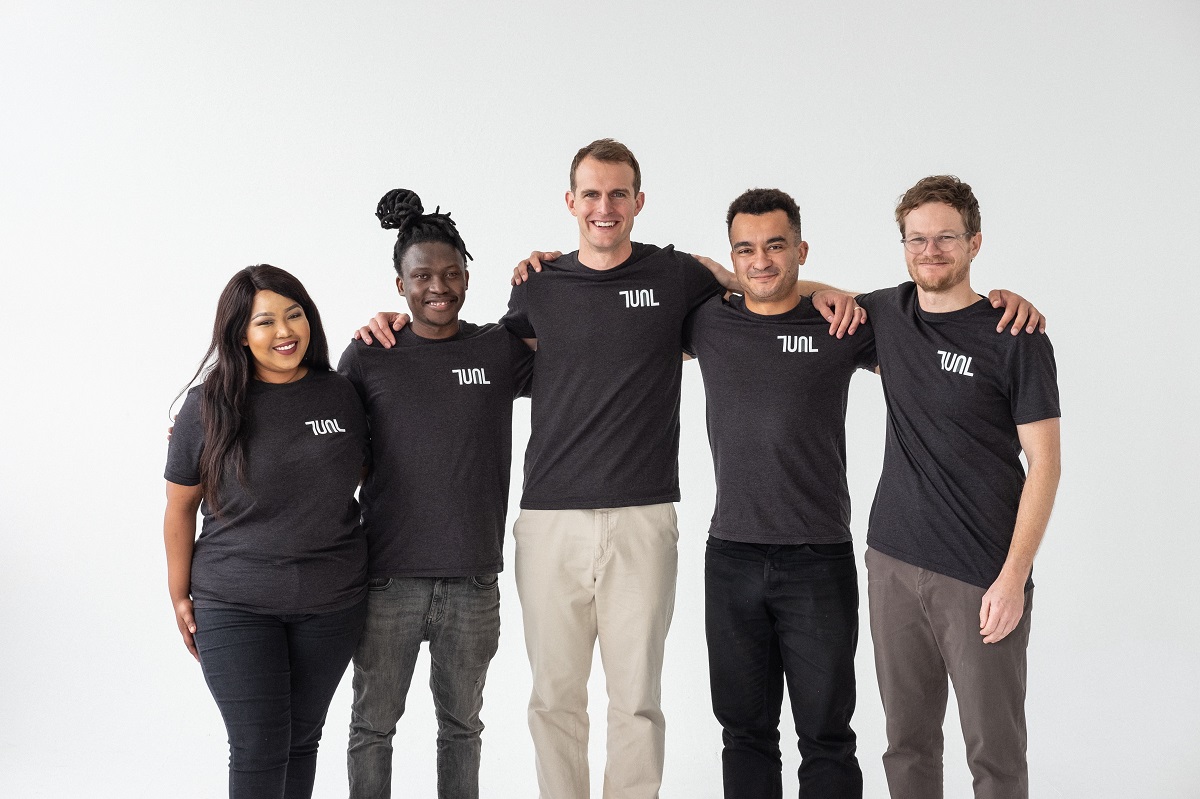Introduction
Are you curious about buying Ethereum in South Africa? Well, you’ve come to the right place! Ethereum, the second largest cryptocurrency by market capitalization, is gaining popularity worldwide for its smart contract capabilities and potential for high returns on investment. Whether you’re a seasoned investor or a newbie looking to dip your toes into the world of cryptocurrencies, this guide will walk you through the process of buying Ethereum in South Africa.
As with any investment, it’s essential to have a basic understanding of what Ethereum is and how it works. In simple terms, Ethereum is a decentralized blockchain platform that enables the creation and execution of smart contracts. These smart contracts are self-executing agreements with predefined terms, making them tamper-proof and transparent. As a result, Ethereum has gained massive traction and is now seen as a promising investment opportunity.
Before diving into the details of purchasing Ethereum, you’ll need to set up a cryptocurrency wallet. A wallet is a digital storage space that allows you to securely store, send, and receive your cryptocurrencies. There are various types of wallets available, including web-based wallets, mobile wallets, desktop wallets, and hardware wallets. Each wallet type has its own advantages and disadvantages, so it’s crucial to choose the one that suits your needs and offers robust security features.
Once you’ve set up your wallet, the next step is to choose a reputable cryptocurrency exchange. An exchange is a platform that facilitates the buying and selling of cryptocurrencies. It’s essential to select an exchange that is user-friendly, offers a wide range of cryptocurrencies, has a robust security infrastructure, and provides reliable customer support. Some popular exchanges in South Africa include Luno, VALR, and ICE3X.
Before you can start buying Ethereum on an exchange, you’ll typically need to go through an account verification process. This process involves submitting your identification documents and completing Know Your Customer (KYC) requirements. These measures are in place to comply with anti-money laundering laws and to ensure the exchange’s security.
Once your account is verified, you can fund it with South African Rand (ZAR). Most exchanges offer various deposit methods, such as bank transfers, credit/debit card payments, and even cryptocurrencies. Choose the method that is convenient for you and consider any fees associated with each option.
With funds in your account, you can now place a buy order for Ethereum. Exchanges typically offer different order types, such as market orders or limit orders. A market order allows you to buy Ethereum at the current market price, while a limit order allows you to set a specific price at which you want to buy Ethereum. Consider your trading strategy and choose the order type that aligns with your investment goals.
Lastly, it’s crucial to follow security measures to protect your investment. Enable two-factor authentication (2FA) on your exchange account, use a unique and strong password, and be cautious of phishing attempts. Additionally, consider transferring your Ethereum to a secure wallet for added protection.
Buying Ethereum in South Africa can be an exciting and profitable investment. With the right knowledge, wallet, and exchange, you can enter the world of cryptocurrency with confidence. So, let’s dive in and discover how you can buy Ethereum in South Africa!
Understanding Ethereum
If you’re considering buying Ethereum in South Africa, it’s crucial to have a solid understanding of what Ethereum is and how it works. Ethereum is a decentralized blockchain platform that enables the creation and execution of smart contracts, making it more than just a cryptocurrency.
Unlike traditional cryptocurrencies like Bitcoin, Ethereum is designed to be more versatile and programmable. While Bitcoin primarily serves as a digital currency, Ethereum takes it a step further by allowing developers to create and deploy decentralized applications (DApps) that run on the Ethereum blockchain.
Ethereum’s programmable nature is made possible through smart contracts. Smart contracts are self-executing agreements with predefined terms and conditions. Once the specified conditions are met, the contract automatically executes without any need for intermediaries or third parties. This makes Ethereum an ideal platform for building decentralized applications for various purposes, including financial services, supply chain management, and decentralized exchanges.
Ethereum’s native cryptocurrency is called Ether (ETH). Ether is used to fuel operations and transactions on the Ethereum network. It is also used as an incentive to motivate developers and participants within the ecosystem.
One of the key advantages of Ethereum is its ability to support decentralized finance (DeFi) applications. DeFi refers to the use of blockchain technology to recreate traditional financial systems and services in a decentralized manner. Through DeFi, users can access lending and borrowing platforms, decentralized exchanges, stablecoins, and more, all without the need for intermediaries.
Ethereum’s popularity and potential for growth have made it an attractive investment opportunity. However, it’s essential to note the risks associated with investing in cryptocurrencies. The cryptocurrency market is highly volatile, and prices can fluctuate rapidly. Additionally, as Ethereum continues to evolve, there may be potential technical challenges and regulatory uncertainties that could impact its value and viability.
Therefore, before investing in Ethereum, it’s crucial to conduct thorough research, consider your risk tolerance, and consult with a financial advisor if needed. Understanding Ethereum’s fundamental principles, potential use cases, and its position within the larger cryptocurrency ecosystem will empower you to make informed investment decisions.
Now that you have a better understanding of Ethereum, let’s move on to the next step in buying Ethereum in South Africa – setting up a wallet.
Setting Up a Wallet
Before you can start buying and storing Ethereum, you’ll need to set up a cryptocurrency wallet. A wallet provides a secure digital space to store, send, and receive your Ethereum and other cryptocurrencies.
There are several types of wallets available, each with its own advantages and security features:
- Web-based Wallets: These wallets are accessible through a web browser and are convenient for easy access from any device. However, since they are hosted online, they may pose a higher security risk.
- Mobile Wallets: These wallets are smartphone applications that offer flexibility and convenience. They allow you to manage your Ethereum on-the-go, making them a popular choice for daily transactions.
- Desktop Wallets: These wallets are software applications installed on your computer. They offer full control and security but require regular software updates and may be vulnerable to malware attacks.
- Hardware Wallets: These are physical devices that resemble USB drives and provide the highest level of security. They store your private keys offline and are resistant to online threats. Hardware wallets are recommended for long-term storage of your Ethereum.
When selecting a wallet, consider factors such as ease of use, security features, backup options, and compatibility with your preferred devices.
Popular wallet options that support Ethereum include MetaMask, MyEtherWallet (MEW), Exodus, Trezor, and Ledger.
Once you’ve chosen a wallet, the next step is to create a unique and strong password. Your password is the key to accessing your Ethereum, so make sure it’s complex and not easily guessable. Additionally, enable two-factor authentication (2FA) on your wallet for an extra layer of security.
After setting up your wallet, it’s crucial to back up your wallet’s recovery phrase or private key. This provides a way to restore your Ethereum in case you lose access to your wallet. Write down the recovery phrase and store it in a safe and secure location.
Remember, your wallet is like a digital bank account for your Ethereum, so it’s important to keep it safe. Be cautious of phishing attempts and never share your private key or wallet credentials with anyone.
Now that you have a wallet set up, you’re ready to move on to the next step – choosing a cryptocurrency exchange to buy Ethereum.
Choosing an Exchange
When it comes to buying Ethereum in South Africa, choosing a reliable and user-friendly cryptocurrency exchange is essential. An exchange is a platform where you can buy, sell, and trade cryptocurrencies, including Ethereum.
Here are some factors to consider when selecting an exchange:
- Reputation and Security: Look for exchanges with a good reputation and a history of secure operations. Check online reviews and forums to see what other users have experienced.
- User Interface: A user-friendly interface makes it easier to navigate the exchange and execute trades efficiently. Look for exchanges with intuitive interfaces and responsive customer support.
- Supported Currencies: Ensure that the exchange supports Ethereum (ETH) and offers a wide range of other cryptocurrencies if you plan to diversify your investments.
- Liquidity: High liquidity on an exchange means that there is a good supply of Ethereum available for buying and selling, allowing for faster transactions and better pricing.
- Exchange Rates and Fees: Compare the exchange rates and fees across different platforms to find the most competitive rates. Keep in mind that some exchanges may have additional fees for deposits, withdrawals, or trading.
- Payment Methods: Consider the payment methods supported by the exchange. Look for exchanges that offer convenient and secure options such as bank transfers, credit or debit card payments, and even cryptocurrencies.
- Regulation and Compliance: It’s important to choose an exchange that adheres to local regulations and has robust Know Your Customer (KYC) procedures in place. This helps ensure the security of your account and compliance with legal requirements.
- Customer Support: Reliable customer support is crucial, especially if you encounter any issues or have questions about the buying process. Look for exchanges that offer multiple support channels and responsive customer service.
Some popular cryptocurrency exchanges in South Africa include Luno, VALR, and ICE3X. These exchanges have gained trust in the local market and offer a seamless user experience.
Before making a decision, take the time to research and compare different exchanges based on the factors mentioned above. Each exchange has its own strengths and weaknesses, so choose the one that aligns with your specific requirements and preferences.
Now that you’ve selected an exchange, the next step is to set up and verify your account on the chosen platform.
Account Verification
Once you’ve chosen a cryptocurrency exchange to buy Ethereum in South Africa, the next step is to go through the account verification process. Account verification is an important step to ensure the security of the exchange and comply with regulatory requirements.
Here’s what you need to know about the account verification process:
1. Sign-Up: Start by creating an account on the chosen exchange. Provide your email address, create a strong password, and agree to the terms and conditions. Some exchanges may also require additional personal information at this stage.
2. KYC (Know Your Customer) Requirements: To comply with anti-money laundering (AML) regulations, exchanges typically require users to complete KYC verification. This involves submitting identification documents to confirm your identity. Common documents include a scanned copy of your passport or driver’s license and proof of address such as a utility bill or bank statement.
3. Submitting Documents: Follow the instructions provided by the exchange to upload your identification documents securely. Make sure the documents are clear and legible to avoid any unnecessary delays in the verification process.
4. Verification Process: The exchange’s verification team will review and validate your submitted documents. This process can take anywhere from a few minutes to a few days, depending on the exchange’s workload and the accuracy of your submissions.
5. Account Approval: Once your documents are verified, you will receive confirmation that your account has been approved. At this point, you can access the exchange’s full range of features and start buying Ethereum.
6. Ongoing Compliance: Note that some exchanges have ongoing compliance requirements, such as periodic re-verification or additional document requests. It’s important to stay informed about any updates from the exchange and promptly provide any requested information to ensure uninterrupted access to your account.
Account verification is a necessary step to ensure the security and integrity of the exchange. It helps protect against fraudulent activities and ensures that the exchange follows the necessary legal and regulatory frameworks.
Now that your account is verified, you are ready to fund your account and start buying Ethereum!
Funding Your Account
Now that your account is verified on the chosen cryptocurrency exchange, it’s time to fund your account so that you can start buying Ethereum. Funding your account involves depositing funds, typically in South African Rand (ZAR), into your exchange wallet.
Here’s what you need to know about funding your account:
1. Deposit Methods: Most exchanges offer multiple deposit methods to suit different user preferences. Common options include bank transfers, credit or debit card payments, and even cryptocurrency deposits. Choose the deposit method that is convenient for you.
2. Bank Transfers: Bank transfers are a popular and secure way to fund your account. You can initiate a transfer from your bank account to the exchange’s designated bank account. Make sure to include the correct reference or payment ID provided by the exchange to ensure smooth processing.
3. Credit or Debit Card Payments: Some exchanges allow you to fund your account using credit or debit cards. This method is convenient and offers instant access to funds, but keep in mind that there may be additional fees associated with card payments.
4. Cryptocurrency Deposits: If you already hold other cryptocurrencies, you may have the option to deposit them into your exchange wallet. Check if the exchange supports the specific cryptocurrency you want to deposit and follow the provided instructions for the deposit process.
5. Transaction Fees: Keep in mind that there may be fees associated with depositing funds into your account. Exchanges often charge a small fee or a percentage of the transaction amount. Make sure to familiarize yourself with the fee structure of the exchange to avoid any surprises.
6. Processing Time: The processing time for deposits can vary depending on the deposit method and the exchange’s policies. Bank transfers may take a few business days, while credit or debit card payments and cryptocurrency deposits are typically processed instantly or within a short period of time.
7. Confirming Deposit: Once your deposit is successfully processed, you should see the funds in your exchange wallet. The available balance will reflect the deposited amount, and you can use these funds to buy Ethereum or other cryptocurrencies.
It’s important to note that you should only deposit the amount you are willing to invest or trade. Cryptocurrency markets can be volatile, and it’s advisable to start with small investments until you become more familiar with the trading process and market dynamics.
With your account funded, you are now ready to place a buy order for Ethereum on the exchange!
Placing a Buy Order
Now that you have a funded account on the cryptocurrency exchange, you can proceed to place a buy order for Ethereum. A buy order is a request to purchase Ethereum at a specific price or at the current market price.
Here’s a step-by-step guide on how to place a buy order:
1. Select Trading Pair: Choose the trading pair that represents Ethereum. It is usually denoted as ETH/ZAR, indicating Ethereum and the South African Rand.
2. Choose Order Type: Exchanges typically offer different order types, such as market orders or limit orders. A market order allows you to buy Ethereum at the current market price, while a limit order lets you set a specific price at which you want to buy Ethereum. Select the order type that aligns with your buying strategy.
3. Set Quantity: Specify the quantity of Ethereum you want to buy. You can enter the amount in Ethereum (ETH) or in ZAR, depending on the exchange’s interface.
4. Review Order Details: Take a moment to review the order details, including the quantity, order type, and the total cost. Ensure that everything is accurate before proceeding.
5. Confirm Order: Once you are satisfied with the order details, confirm your buy order. The exchange will then execute the buy order and deduct the corresponding funds from your account balance.
6. Order Execution: If you placed a market order, the buy order will be executed at the current market price. If you placed a limit order, the buy order will be executed when the market price reaches your specified price. Keep in mind that market conditions can affect the execution time and price of your order.
7. Check Order Status: After placing the buy order, you can monitor the order status in your account. The order status will specify whether the order has been filled or is still open.
It’s important to note that the price of Ethereum can fluctuate rapidly due to market conditions, so it’s essential to stay informed about the current market trends and make informed decisions. Additionally, consider setting stop-loss orders or implementing other risk management strategies to protect your investment.
By placing a buy order for Ethereum, you are now the proud owner of this digital asset. Remember to regularly check your investment and consider transferring your Ethereum to a secure wallet for added security.
With the buy order placed, it’s crucial to implement security measures to safeguard your investment. Let’s explore some essential security tips in the next section.
Security Tips
When it comes to buying and owning Ethereum, it’s essential to prioritize security to protect your investment. Here are some key security tips to keep in mind:
1. Enable Two-Factor Authentication (2FA): Enable 2FA on your exchange account and wallet for an added layer of security. This typically involves using an app or receiving SMS codes to authenticate your login attempts.
2. Use Strong and Unique Passwords: Create strong, unique, and complex passwords for your exchange account and wallet. Avoid using easily guessable information and consider using a password manager to securely store and manage your passwords.
3. Be Aware of Phishing Attempts: Be cautious of phishing attempts that try to trick you into sharing your login credentials or sensitive information. Avoid clicking on suspicious links and always verify the authenticity of the website or email before providing any personal information.
4. Secure Your Devices: Keep your devices, including computers, smartphones, and hardware wallets, secure with up-to-date antivirus software and device security features. Regularly update your operating systems and applications to patch any security vulnerabilities.
5. Be Mindful of Public Wi-Fi: Avoid accessing your exchange account or conducting financial transactions over public Wi-Fi networks. Public networks can be insecure, making it easier for hackers to intercept your data. Opt for a secure and trusted network or use a virtual private network (VPN) for added protection.
6. Regularly Backup Your Wallet: Regularly back up your wallet’s recovery phrase or private key and store it in a safe and secure location. This will ensure that you can recover your Ethereum in case of loss, theft, or hardware failure.
7. Consider Cold Storage: For long-term storage and added security, consider transferring your Ethereum to a hardware wallet or cold storage. These offline wallets keep your private keys offline, reducing the risk of being compromised by online threats.
8. Stay Informed: Stay updated on the latest security practices and news in the cryptocurrency space. This will help you stay ahead of potential threats and make informed decisions regarding your investment.
Remember, the security of your Ethereum investment is your responsibility. By following these security tips and staying vigilant, you can mitigate risks and protect your investment from potential threats.
Now that you have a good understanding of the security measures, you are well-equipped to buy Ethereum in South Africa securely. In the next section, we’ll wrap up the article and summarize the key points discussed.
Conclusion
Buying Ethereum in South Africa can be an exciting and potentially profitable investment opportunity. By following the steps outlined in this guide, you can navigate the process with confidence and security.
First, it’s important to have a solid understanding of Ethereum and its capabilities as a decentralized blockchain platform. Ethereum’s smart contract functionality and potential for decentralized finance make it an appealing investment option.
Setting up a wallet is crucial for securely storing your Ethereum. Choose a wallet type that aligns with your needs and prioritize security features like two-factor authentication and regular backups.
Choosing a reputable cryptocurrency exchange is key to a smooth and reliable buying experience. Consider factors such as reputation, user interface, supported currencies, liquidity, fees, and customer support.
Account verification is necessary to comply with regulatory requirements and ensure the security of the exchange. Follow the KYC procedures and provide the necessary identification documents to verify your account.
After verifying your account, you can fund it with South African Rand (ZAR) through various deposit methods. Pay attention to transaction fees and processing times associated with your chosen deposit method.
With your account funded, you can place a buy order for Ethereum on the exchange. Specify the quantity and type of order, and review the order details before confirming.
Implementing security measures is crucial to protect your investment. Enable two-factor authentication, use strong passwords, be cautious of phishing attempts, secure your devices, and consider cold storage for long-term holdings.
By following these steps and prioritizing security, you can navigate the process of buying Ethereum in South Africa and enter the world of cryptocurrencies confidently.
Remember to conduct thorough research, monitor market trends, and stay informed about the latest developments in the cryptocurrency space. Investing in Ethereum or any other cryptocurrency involves risks, so it’s important to consider your risk tolerance and consult with a financial advisor if needed.
Now that you’re equipped with the knowledge and steps to buy Ethereum, it’s time to take the plunge and start your cryptocurrency investment journey!

























